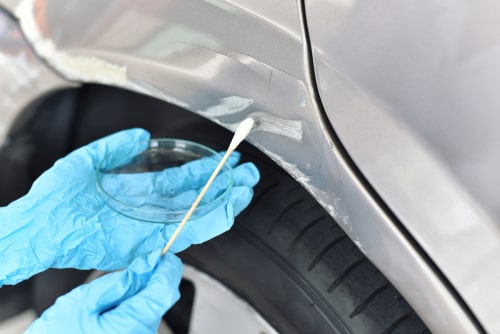2591 Dallas Parkway, Suite 207A, Frisco, TX 75034
Free Consultations
469-333-3333
 |
DO I HAVE TO GO TO TRIAL IN TEXAS? |
Recent Blog Posts
Questions to Ask When You Are Charged With a Crime in Texas
 You have a lot to think about when you are facing criminal charges. You will need to consider the legal, practical, financial, and personal impact of your case and determine what your priorities are. A criminal case can have a far-reaching and long-lasting effect on your life, even if you are only facing a misdemeanor charge. It is important to speak with an experienced Allen, TX criminal defense attorney as soon as you possibly can. A lawyer can likely help you with everything from getting out of jail faster using an attorney writ bond to protecting your personal priorities, like keeping your license after a DWI or not losing your job.
You have a lot to think about when you are facing criminal charges. You will need to consider the legal, practical, financial, and personal impact of your case and determine what your priorities are. A criminal case can have a far-reaching and long-lasting effect on your life, even if you are only facing a misdemeanor charge. It is important to speak with an experienced Allen, TX criminal defense attorney as soon as you possibly can. A lawyer can likely help you with everything from getting out of jail faster using an attorney writ bond to protecting your personal priorities, like keeping your license after a DWI or not losing your job.
What to Think About When You Have Been Arrested
Some questions to ask yourself or your attorney after an arrest include:
- Am I eligible for an attorney writ bond? An attorney writ bond can get you out of jail in a matter of hours, even over the weekend. You may qualify to be released using an attorney writ bond if you are charged with a nonviolent misdemeanor.
When Your Spouse Calls the Police and Reports Domestic Violence in Texas
 You and your husband or wife got into a heated argument. It was the worst fight you have ever had. One or both of you was yelling or screaming. Whether or not there was any actual domestic violence involved, your neighbor overheard the dispute and called the police. Now there are police officers in your house, and they are separating you and your spouse to question both of you. You do not know what your spouse is going to say. Or, maybe it was your spouse who called the police and claimed that you assaulted him or her, and you know that the police are going to arrive soon. The best thing you can do is contact a Collin County criminal defense attorney as soon as you have the opportunity.
You and your husband or wife got into a heated argument. It was the worst fight you have ever had. One or both of you was yelling or screaming. Whether or not there was any actual domestic violence involved, your neighbor overheard the dispute and called the police. Now there are police officers in your house, and they are separating you and your spouse to question both of you. You do not know what your spouse is going to say. Or, maybe it was your spouse who called the police and claimed that you assaulted him or her, and you know that the police are going to arrive soon. The best thing you can do is contact a Collin County criminal defense attorney as soon as you have the opportunity.
What Not to Do When the Police Are Called for Domestic Violence
Knowing what not to do is just as important as knowing what to do. If the police respond or will respond to a domestic violence call, do not:
5 Types of Assault in Texas and the Gravity of Each Offense
 The term “assault” covers a broad range of violent crimes, ranging from relatively minor misdemeanors to serious felonies. Simple assault cases often stem from bar fights or minor disputes between friends or neighbors that lead to one party pushing the other. More serious assaults might involve the use of a weapon and serious bodily harm to the victim. If you are facing any type of assault charge, it is important to find a skilled Prosper, TX, criminal defense lawyer. Assault charges can sometimes be downgraded in seriousness or dismissed for lack of evidence when law enforcement did not witness the altercation.
The term “assault” covers a broad range of violent crimes, ranging from relatively minor misdemeanors to serious felonies. Simple assault cases often stem from bar fights or minor disputes between friends or neighbors that lead to one party pushing the other. More serious assaults might involve the use of a weapon and serious bodily harm to the victim. If you are facing any type of assault charge, it is important to find a skilled Prosper, TX, criminal defense lawyer. Assault charges can sometimes be downgraded in seriousness or dismissed for lack of evidence when law enforcement did not witness the altercation.
Types of Assault and Their Seriousness
Types of assault charges in Texas include:
- Simple assault - Misdemeanor assault is very easy to commit in the midst of an argument. Simply throwing a half-empty paper cup at your neighbor during an argument over parking could be considered an assault. No injury to the victim is required.
Motorcycle DWIs in Texas
 The same DWI laws that apply to all other motorists in Texas also apply to motorcycle riders. It is fairly common for several riders in a group to be charged at the same time, often on the way back from a motorcycle club event or group ride. Drinking and sometimes light drug use, like smoking marijuana, can be a part of motorcycle culture for some groups, while sobriety may be a focus for other groups. Unfortunately, drinking before or during group rides can lead to trouble. It might seem that there is less risk to the public when the impaired motorist is on a motorcycle - it is harder to injure others if you hit them while on such a small vehicle. However, the risk to the motorcyclist and others they are riding with may be extreme, so DWI laws are strictly enforced. If you have been charged with a DWI while riding a motorcycle, it is important to quickly contact a Plano, TX, motorcycle DWI attorney.
The same DWI laws that apply to all other motorists in Texas also apply to motorcycle riders. It is fairly common for several riders in a group to be charged at the same time, often on the way back from a motorcycle club event or group ride. Drinking and sometimes light drug use, like smoking marijuana, can be a part of motorcycle culture for some groups, while sobriety may be a focus for other groups. Unfortunately, drinking before or during group rides can lead to trouble. It might seem that there is less risk to the public when the impaired motorist is on a motorcycle - it is harder to injure others if you hit them while on such a small vehicle. However, the risk to the motorcyclist and others they are riding with may be extreme, so DWI laws are strictly enforced. If you have been charged with a DWI while riding a motorcycle, it is important to quickly contact a Plano, TX, motorcycle DWI attorney.
Fatal DWI Charges in Texas
 The most serious type of DWI charge in Texas is vehicular intoxication manslaughter. Vehicular intoxication manslaughter charges are brought when a drunk driver causes an accident that kills another person. It is a felony that can send someone to prison for years and change the course of their life in an instant. Fatal crashes are the worst possible outcome of drunk driving, and as such are punished the most harshly. Manslaughter generally means killing someone without intending to but while acting in a manner that creates a substantial risk of death for others. It is a step down from outright murder. If you are facing this extreme DWI charge, it is important to be represented by a highly experienced Frisco, TX, DWI defense lawyer.
The most serious type of DWI charge in Texas is vehicular intoxication manslaughter. Vehicular intoxication manslaughter charges are brought when a drunk driver causes an accident that kills another person. It is a felony that can send someone to prison for years and change the course of their life in an instant. Fatal crashes are the worst possible outcome of drunk driving, and as such are punished the most harshly. Manslaughter generally means killing someone without intending to but while acting in a manner that creates a substantial risk of death for others. It is a step down from outright murder. If you are facing this extreme DWI charge, it is important to be represented by a highly experienced Frisco, TX, DWI defense lawyer.
What Are the Penalties for Vehicular Intoxication Manslaughter in Collin County, TX?
People who have caused a fatal car crash while driving drunk face very serious legal penalties in Texas. If you are convicted, your sentence might include:
Collateral Consequences of a Felony in Texas
 The punishment a judge sentences you to after a felony conviction is called “legal consequences.” Legal consequences can include prison time, community service, a fine, and GPS monitoring or probation. Collateral consequences are anything else that happens to you as a result of a felony conviction. Like legal consequences, collateral consequences can vary tremendously based on the particular crime you were convicted of. While the legal consequences usually come with an end date, collateral consequences can follow you for the rest of your life. Your Frisco, TX, criminal defense lawyer can help you understand what life could look like after a felony conviction while fighting to help you avoid being convicted of a felony in the first place. Presenting a strong legal defense is the best way to minimize or avoid both legal and collateral consequences.
The punishment a judge sentences you to after a felony conviction is called “legal consequences.” Legal consequences can include prison time, community service, a fine, and GPS monitoring or probation. Collateral consequences are anything else that happens to you as a result of a felony conviction. Like legal consequences, collateral consequences can vary tremendously based on the particular crime you were convicted of. While the legal consequences usually come with an end date, collateral consequences can follow you for the rest of your life. Your Frisco, TX, criminal defense lawyer can help you understand what life could look like after a felony conviction while fighting to help you avoid being convicted of a felony in the first place. Presenting a strong legal defense is the best way to minimize or avoid both legal and collateral consequences.
The Unexpected Consequences of a Felony Conviction
Some of the collateral consequences you could face after a felony conviction include:
Options for Resolving Your Criminal Charges
 When you are facing criminal charges, you might feel like you have no options. There are a lot of new rules and orders you must suddenly obey. You must come to court when you are told to, or you may be arrested for failure to appear. If your crime involved a victim, you must stay away from that person and avoid contacting them in any way. You might be forced to wear a GPS monitor on your ankle, check in with a pretrial supervision officer, observe a curfew, or refrain from traveling out of the area. All of this might make you feel backed into a corner. It is important to know that you still have choices and you still have rights. A Plano, TX, criminal defense attorney can help you understand what your options for resolving your charges are so that you can make the right decision for you
When you are facing criminal charges, you might feel like you have no options. There are a lot of new rules and orders you must suddenly obey. You must come to court when you are told to, or you may be arrested for failure to appear. If your crime involved a victim, you must stay away from that person and avoid contacting them in any way. You might be forced to wear a GPS monitor on your ankle, check in with a pretrial supervision officer, observe a curfew, or refrain from traveling out of the area. All of this might make you feel backed into a corner. It is important to know that you still have choices and you still have rights. A Plano, TX, criminal defense attorney can help you understand what your options for resolving your charges are so that you can make the right decision for you
Your Choices When You Have Been Charged With a Crime in Collin County, TX
Going to trial is certainly one of your options, but it is not your only option by far. Some of the options you may have for resolving your criminal charges include:
Who Can Legally Use THC in Texas?
 Very few people can legally use any amount or type of THC products under Texas state law. While our state does offer a compassionate use program, the program is extremely limited in its application. Simply having a qualifying condition listed under the CUP laws does not mean that you are allowed to possess and use all cannabis products. You must apply for this program, receive a physician’s recommendation, and register properly before you are permitted to purchase, possess, and consume certain forms of low-THC products from state-licensed sources. Many individuals who use medical marijuana do not understand these regulations and accidentally run afoul of them. If you have been arrested for cannabis possession, a Collin County, TX, criminal defense lawyer can help you.
Very few people can legally use any amount or type of THC products under Texas state law. While our state does offer a compassionate use program, the program is extremely limited in its application. Simply having a qualifying condition listed under the CUP laws does not mean that you are allowed to possess and use all cannabis products. You must apply for this program, receive a physician’s recommendation, and register properly before you are permitted to purchase, possess, and consume certain forms of low-THC products from state-licensed sources. Many individuals who use medical marijuana do not understand these regulations and accidentally run afoul of them. If you have been arrested for cannabis possession, a Collin County, TX, criminal defense lawyer can help you.
Defending Against Drug Possession Charges
 In Texas, it is a crime to possess, distribute, or manufacture controlled substances. If you are facing charges of drug possession in Texas, you may be tried for either a felony or misdemeanor.
In Texas, it is a crime to possess, distribute, or manufacture controlled substances. If you are facing charges of drug possession in Texas, you may be tried for either a felony or misdemeanor.
Potential punishments will depend on the severity of the drug and the amount in your possession. If you are in the midst of defending drug possession charges, you need the counsel of a Frisco drug possession attorney.
Drug Classifications in Texas
The Lone Star state classifies drugs according to their potential for abuse and if the substance serves a medical purpose.
A controlled substance is any government-regulated drug, substance, or chemical. The Texas Controlled Substances Act categorizes controlled substances as belonging to either Schedule I, II, III, IV, or V.
Schedule I has the highest potential for abuse and lacks safety standards for medical use, while drugs in Schedule V have the lowest rate of abuse and have a clear purpose in medical treatment. Drugs are also classified based on a patient’s risk of becoming dependent.
Is Jail Time Possible for a DWI?
 If you are caught drinking and driving in Texas, even as a first-time offender, you will likely be facing jail time. Avoiding a conviction at all costs is very important to keep your record clear, but you need experienced counsel to help you through the legal process.
If you are caught drinking and driving in Texas, even as a first-time offender, you will likely be facing jail time. Avoiding a conviction at all costs is very important to keep your record clear, but you need experienced counsel to help you through the legal process.
If you have been arrested for driving while intoxicated, our Frisco DWI defense attorneys can help you defend these charges against you.
Prison Time for a DWI
Impaired driving comes with severe consequences in the Lone Star state. If you have a blood alcohol concentration (BAC) of 0.08% or higher, you are driving over the legal limit in Texas.
If you are a first-time offender, you will be sentenced to three days in prison, with the potential for up to 180 days. If it is your second offense, you may be sentenced to one month to one year in prison. For a third offense, you may be sentenced to two to ten years in prison.


 600+ DWI & CRIMINAL DEFENSE TRIALS
600+ DWI & CRIMINAL DEFENSE TRIALS
















